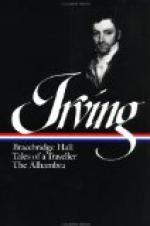The house in Fifth Avenue went to a sister, together with a million or two, and the residue of the estate found kindly disposed relatives who were willing to keep it from going to the Home for Friendless Fortunes. Old Mr. Brewster left his affairs in order. The will nominated Jerome Buskirk as executor, and he was instructed, in conclusion, to turn over to Montgomery Brewster, the day after the will was probated, securities to the amount of one million dollars, provided for in clause four of the instrument. And so it was that on the 26th of September young Mr. Brewster had an unconditional fortune thrust upon him, weighted only with the suggestion of crepe that clung to it.
Since his grandfather’s death he had been staying at the gloomy old Brewster house in Fifth Avenue, paying but two or three hurried visits to the rooms at Mrs. Gray’s, where he had made his home. The gloom of death still darkened the Fifth Avenue place, and there was a stillness, a gentle stealthiness about the house that made him long for more cheerful companionship. He wondered dimly if a fortune always carried the suggestion of tube-roses. The richness and strangeness of it all hung about him unpleasantly. He had had no extravagant affection for the grim old dictator who was dead, yet his grandfather was a man and had commanded his respect. It seemed brutal to leave him out of the reckoning—to dance on the grave of the mentor who had treated him well. The attitude of the friends who clapped him on the back, of the newspapers which congratulated him, of the crowd that expected him to rejoice, repelled him. It seemed a tragic comedy, haunted by a severe dead face. He was haunted, too, by memories, and by a sharp regret for his own foolish thoughtlessness. Even the fortune itself weighed upon him at moments with a half-defined melancholy.
Yet the situation was not without its compensations. For several days when Ellis called him at seven, he would answer him and thank fortune that he was not required at the bank that morning. The luxury of another hour of sleep seemed the greatest perquisite of wealth. His morning mail amused him at first, for since the newspapers had published his prosperity to the world he was deluged with letters. Requests for public or private charity were abundant, but most of his correspondents were generous and thought only of his own good. For three days he was in a hopeless state of bewilderment. He was visited by reporters, photographers, and ingenious strangers who benevolently offered to invest his money in enterprises with certified futures. When he was not engaged in declining a gold mine in Colorado, worth five million dollars, marked down to four hundred and fifty, he was avoiding a guileless inventor who offered to sacrifice the secrets of a marvelous device for three hundred dollars, or denying the report that he had been tendered the presidency of the First National Bank.




